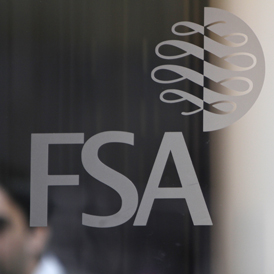Banks fail to give appropriate financial advice
Leading high street names, including state-owned banks, are among financial institutions found to be offering poor or inadequate investment advice, according to consumer group Which?

Lloyds TSB and Halifax were among the big names Which? found did not demonstrate any examples of good practice while giving advice to its undercover team of experienced investors aged over 60.
The researchers found that only five out of 37 advisers in banks and building societies gave what it termed “good advice”, while the majority of advisers showed a poor understanding of the risks and made misleading statements.
James Daley, editor of Which? Money told Channel 4 News that although the sample it investigated was small it was clear that advisers were not being entirely open about their independence: “We were looking for advisers to disclose their status as ‘tied’ to certain providers and establish whose products they could sell.
“We wanted them to do a fact-find to assess people’s appetite for risk, discuss tax-free investments such as Isas, and to fully explain the products and their risks as well as fees and charges.”
Which? said some advisers even referred to their advice as “free” when they were tied to certain providers.
Hefty fees
The researchers posed as retired savers and told advisers they had a lump sum they were looking to reinvest.
Which? found that seventeen consultants recommended complicated and high-charging investment bonds, with four of the advisers failing to mention that these came with hefty exit fees, sometimes as high as 12 per cent, to release money within the first five years.
Eighteen of the advisers claimed there was no cost for their advice, although banks and building societies make money through commission paid for the products they recommend, Which? said.
Trust
Which? Money editor James Daley told Channel 4 News the findings indicate people are getting bad advice because advisers are being incentivised to sell products which may or may not be appropriate: “The thing about poor advice is you don’t know you’ve been given it so people have to put their trust in the advice they’re given.
“The Financial Services Authority must act quickly on this.”
Which? said it was reporting its findings to the FSA and urging the regulator to investigate.
Meanwhile, the organisation also tested six independent financial advisers (IFAs) and found that four gave good advice to researchers.
Commission will be abolished for IFAs from the end of 2012, after which advisers will be remunerated through a system called “adviser charging” where advisers will need to agree with clients how much they charge for their services.
-
Latest news
-
As India goes to the polls in the world’s largest election – what do British-Indians think?6m

-
Tees Valley: Meet the candidates in one of the biggest contests coming up in May’s local elections4m

-
Keir Starmer says public sector reform will be a struggle7m

-
Nicola Sturgeon’s husband Peter Murrell charged with embezzlement of funds from SNP1m

-
Ukraine might finally get $60billion in American weapons and assistance to defend against Russia3m

-




